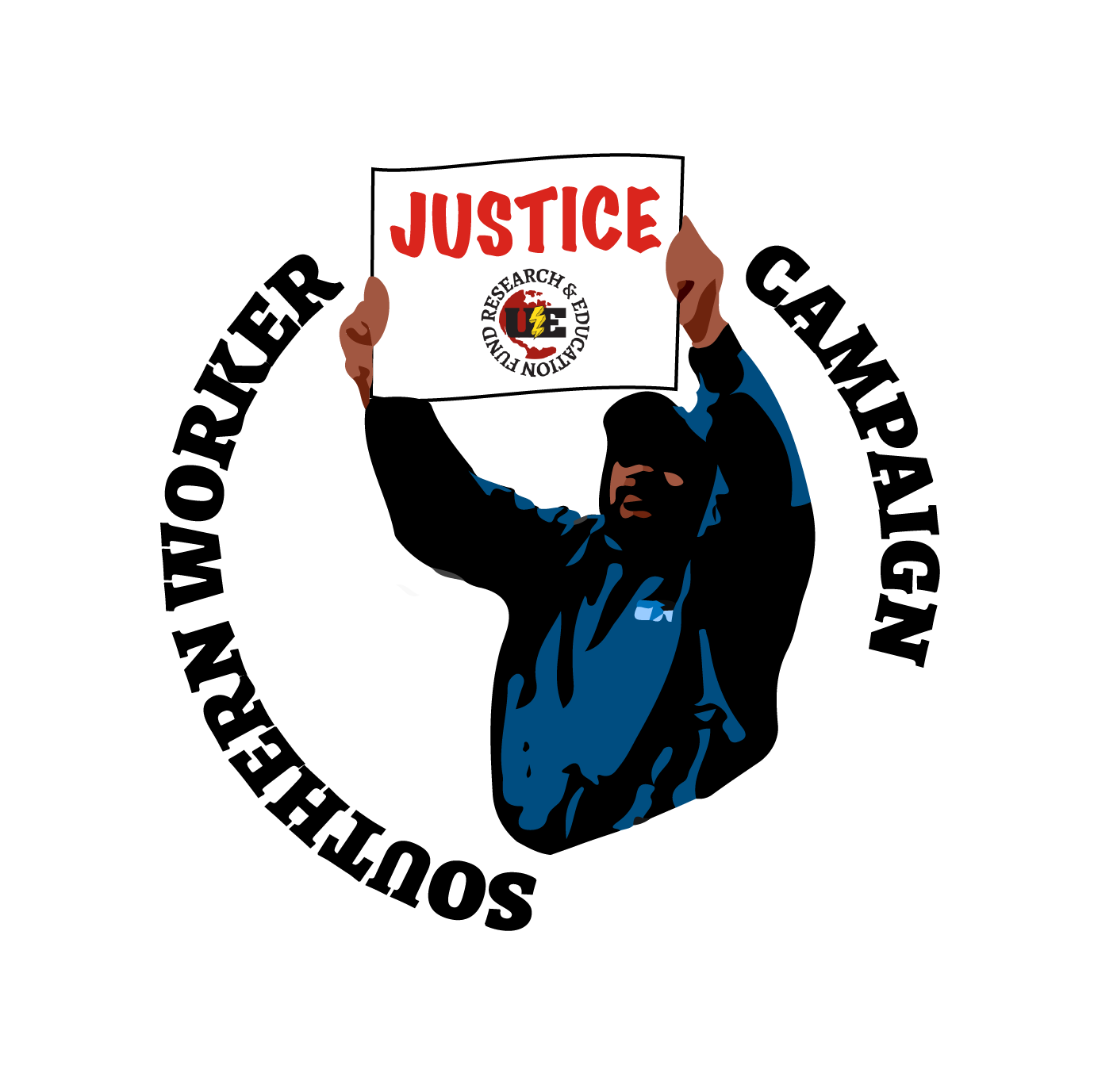
The US South is home to millions of working class public sector workers, the majority of whom are Black and Brown citizens, immigrants, and refugees. As city and state employees, they ensure our drinking water is clean, collect our trash, and keep our parks beautiful. As healthcare technicians and nurses, they provide vital care for patients in state medical facilities. As housekeepers, groundskeepers, and food service workers, they play an essential role in how our mental health facilities, public schools and universities function. Yet, Southern states have the lowest rates of unionization in the nation – and North Carolina bans public sector collective bargaining outright. As a result, workers earn low wages, lack workplace protections, and are vulnerable to exploitation, unfair disciplinary action, and institutional racism.
The Southern Worker Justice Campaign (SWJC), a project of UE Research and Education Fund, stands with Black, Brown, and immigrant public sector workers fighting for rights and dignity in the workplace. We believe that building a mass movement of Black, Brown, and immigrant worker-leaders across the South is essential for transforming our national economy and social conditions. SWJC educates and empowers working class public sector workers to stand up for workplace justice and take the lead in broader social movements for change. We bring our members together across entire states and industries in common cause, develop worker-leaders, and build intersectional power for those who need it most. Most importantly, we mobilize rank and file workers to demand the reallocation of funds away from bloated police departments and to win a living wage, workplace protections, and essential collective bargaining rights.
SWJC's Campaigns
→
SWJC In the News
→
